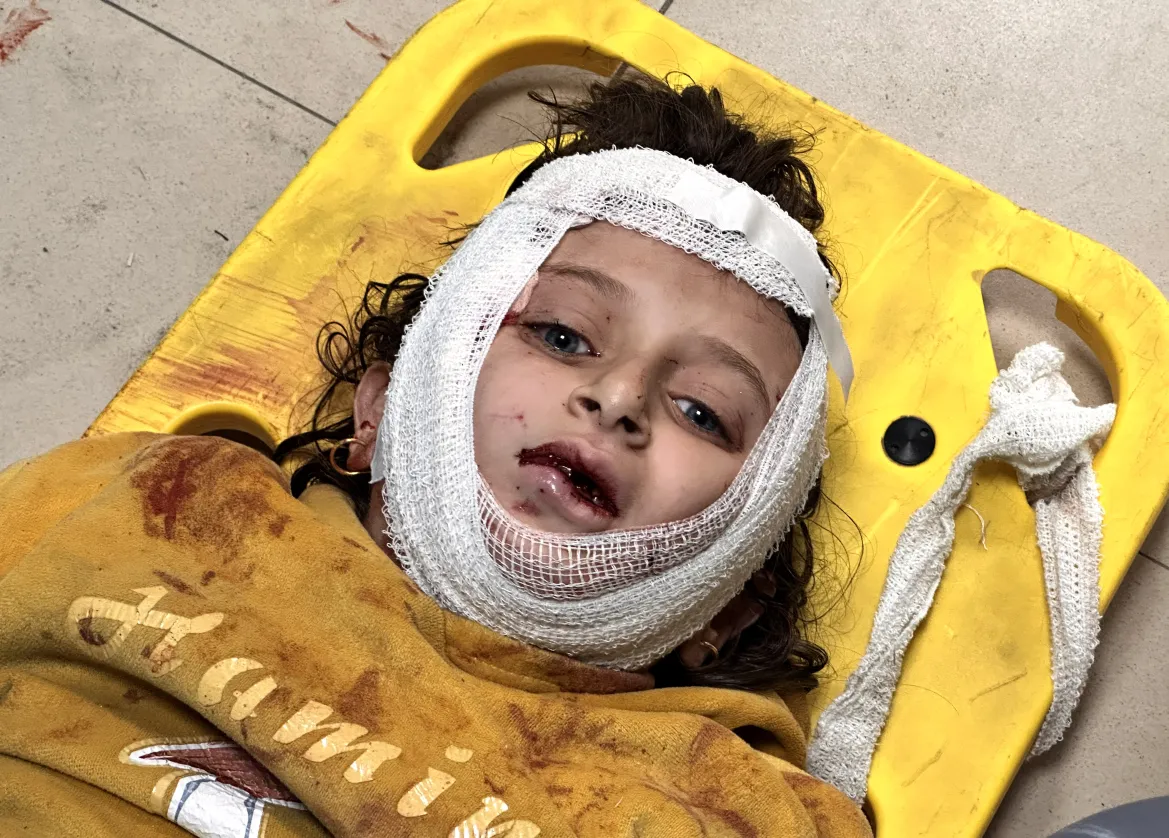
Austin, December 24 (RHC)-- Of all the doctors and medical personnel killed in Gaza this year, Dr Osaid Alser estimates he knew half personally.
Alser, a researcher and resident at the Texas Tech University Health Sciences Center in the United States, grew up in Gaza City, Palestine’s largest city. He began his medical career there, starting as a student and eventually becoming a teacher himself.
But since the start of the war in Gaza on October 7, Alser has watched as Israeli bombs have rained down on his hometown and military forces have stormed into medical centres. The result has been the near collapse of Gaza’s healthcare system. Only 11 hospitals — a third of those in the enclave — remain operational, with dwindling amounts of fuel and medical supplies.
Faced with the death and destruction in Gaza, Alser felt compelled to speak up. “We have a duty to say: Stop the war and ceasefire now,” he told Al Jazeera. To him, calling for a ceasefire was an ethical imperative, not a political statement.
But not all healthcare providers feel the same way. Many feel an obligation to avoid commenting on conflicts, as part of a tradition that views medical workers as above the fray.
However, the intensity of the war — and its particular toll on Gaza’s health system — have spurred some to ask: When do medical professionals have a responsibility to speak out?
The debate erupted last month with a meeting of the American Medical Association (AMA), the largest professional organisation for physicians in the United States. Its House of Delegates, which sets the organisation’s policies, declined to debate a resolution that would have called for a ceasefire in Gaza.
According to the publication MedPage Today, some of the delegates felt the resolution would force them to decide whether the conflict in Gaza was a “’just war’ or ‘unjust war’”. That, they said, was not their role.
The concept of so-called “medical neutrality” stretches back to a history of civilian involvement in battlefield medical care, with some volunteer nurses tending to the sick and wounded on both sides of a conflict.
International law has since developed to protect the roles healthcare workers have in warfare, making it a war crime to intentionally attack medical personnel. But “medical neutrality” does not necessarily mean impartiality. And some medical ethicists point out that the scale of the Gaza conflict has raised dire questions.
“The concern that a lot of people are having is that this is not business as usual,” Harold Braswell, an associate professor of healthcare ethics at Saint Louis University, told Al Jazeera.
“Israel has dropped an enormous amount of bombs on a highly condensed civilian area in a very, very short period of time. And that has created a very, very urgent situation.”
Gaza, a narrow strip only 11km (7 miles) wide and 40 km (25 miles) long, is home to 2.3 million people. Palestinian health authorities estimate that at least 19,453 people have been killed, two-thirds of them women and children.
A further 1.9 million have been displaced, with tens of thousands living in the streets of Rafah after Israel ordered civilians to flee south. Humanitarian organizations have warned of healthcare workers being killed, as bombs drop on hospitals and ambulance convoys.
Alser, the doctor in Texas, has taken it upon himself to sketch out the scale of the impact. He and his brother, also a doctor, launched an initiative last month to track the number of healthcare workers killed.
So far, they have documented 278 killed since the start of the war. That includes 104 physicians, 87 nurses and 87 others working in various medical roles. “That includes a lot of my friends, my mentors, even my own medical students that I taught back in 2017, who went on to become doctors and have been killed,” Alser said.
“We’ve been documenting the names of course, because they’re not just numbers, and we’re posting their stories from people we know and trust on the ground.”
In addition, Israel has detained more than 40 health workers, including Dr Muhammad Abu Salmiya — the director of Gaza’s largest hospital, al-Shifa — and Alser’s former student, Dr Saleh Eleiwa. The rising numbers left Alser feeling no choice but to speak out.
“I just felt like we absolutely have to talk about this,” he said. “So that’s really the motivation: Seeing our colleagues, friends, family being killed — doctors, professionals who just work in medicine [and] go home after they work for many, many hours and they get killed.”
Alser is not alone. The American Public Health Association (APHA), the largest professional body for public health workers in the U.S., issued an appeal last month for an immediate ceasefire, amid pressure from its members.
Healthcare labor unions and advocacy groups have likewise called for a ceasefire. And more than 100 faculty members at public health and medical schools signed a letter this month urging the US government to support a ceasefire.
U.S. President Joe Biden has thus far avoided pressing for a ceasefire, citing Israel’s right to “defend itself.”
For many, such an argument of "self-defense" doesn't hold up when weighed against 20,000 civilian deaths, the majority of them women and children.

